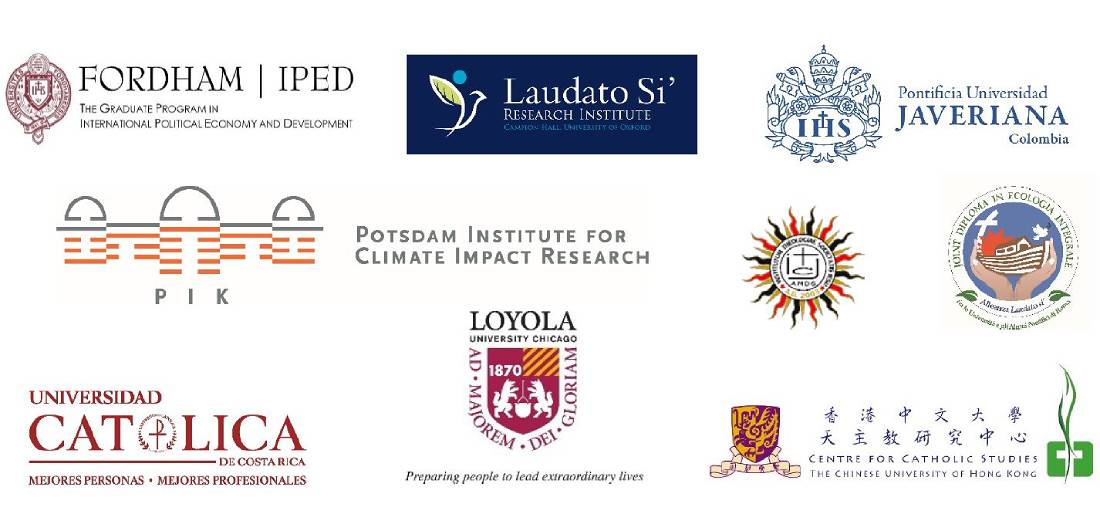Transdisciplinary Approaches for the Grounding and Implementation of a Holistic Worldview
International Conference
06. – 08. June 2022 | Pontifical Gregorian University, Rome & online
The Pontifical Gregorian University, the Catholic University of Eichstätt-Ingolstadt, the University of Passau, the Federation of German Scientists (VDW) and other partners have organized an international conference in Rome, from 6th to 8th June 2022, entitled “Transitioning to Integral Ecology? Transdisciplinary Approaches for the Grounding and Implementation of a Holistic Worldview”.
The organizers recognize that such transitions towards an “integral ecology” mindset are already occurring in different fields (similar calls towards holism have been made, e.g. in the pursuit of “Sustainable Development Goals”, the implementation of the 2015 Paris Agreement on climate change, or the Club of Rome’s proposal of a “New Enlightenment”). However, they believe that the task is complex indeed, requiring the contribution of many different academic disciplines to any one issue.
The main reason for this conference was to help stakeholders recognize the transdisciplinary challenges involved in such a task. For this reason, the programme consisted of three afternoons each of which explored a particular dimension of “integral ecology”: the natural-scientific; the socioeconomic and cultural; and the philosophical and theological. On each day, the primary contributors were from the disciplines featured, while the panelists came from different disciplines, focusing on the foundations and the implementation of integral ecology, as well as presenting best practices.
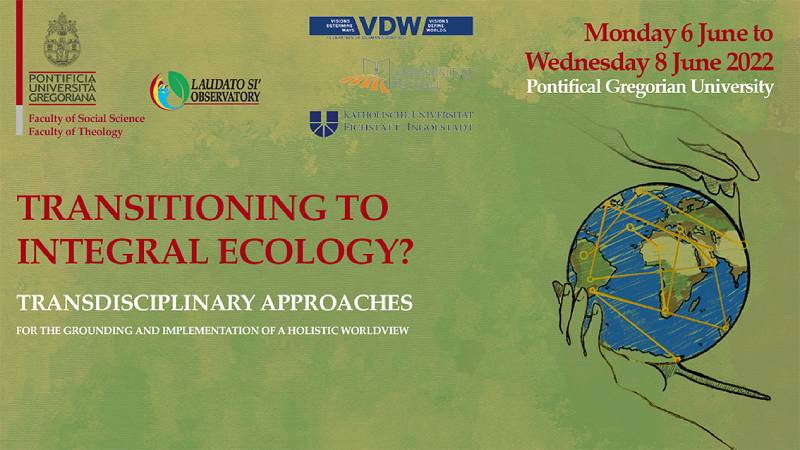
More information:
Please find the organizing institutions as well as the partners below
↓ ↓ ↓
Speakers:
To read their short bio, please click on the respective speakers‘ names or pictures!
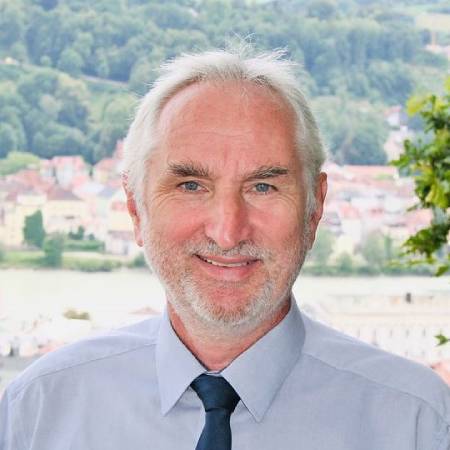 President of the University of Passau
President of the University of PassauUlrich Bartosch
Ulrich Bartosch hails from Regensburg. In 2000 he became Professor of Education at the Catholic University of Eichstätt-Ingolstadt (KU) and he also taught at Leuphana University of Lüneburg and Kiel University of Applied Sciences. Since April 2020 he is president of the University of Passau. Ulrich Bartosch gained his master’s-level degrees, Diplom and Magister in Education and Political Science respectively, at the University of Regensburg. He wrote his doctorate on the history of political ideas under Iring Fetscher and Herfried Münkler in Frankfurt am Main. Up to April 2022 Ulrich Bartosch was Chairman of the Scientific Advisory Board of the Federation of German Scientists (VDW), whose executive board he previously headed for six years (2009–15). Ulrich Bartosch has initiated the Laudato si’-project on the KU and is Head of project from its very beginning on.
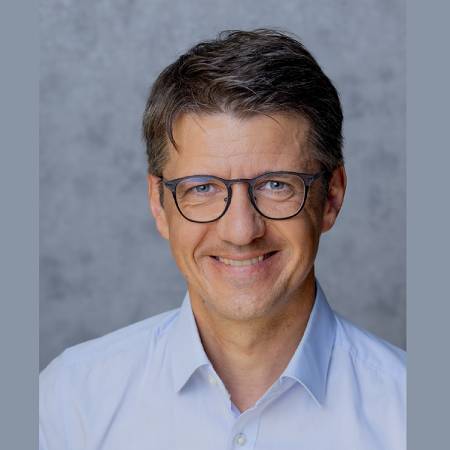 Chair of Theological Ethics, University of Passau
Chair of Theological Ethics, University of PassauBernhard Bleyer
Bernhard Bleyer currently holds the Chair of Theological Ethics at the University of Passau. After his studies at the University of Regensburg and the Universidad Católica in Cochabamba (Bolivia), he received his doctorate at the University of Regensburg (Germany) and his habilitation at the KU Linz (Austria) in moral theology. The last two professional stations led him to the Institute for Sustainability in Technology and Economy (Ostbayerische Technische Hochschule Amberg-Weiden) and to the Faculty of Applied Health Science (Deggendorf Insitute of Technology, both in Germany). Recent publications have dealt with responsible consumption and normative questions of sustainable development.
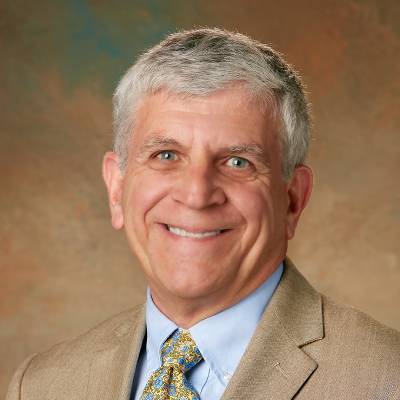 Professor of Philosophy and Director of the Lonergan Institute, Boston College
Professor of Philosophy and Director of the Lonergan Institute, Boston CollegePatrick H. Byrne
Patrick H. Byrne is Professor of Philosophy and Director of the Lonergan Institute at Boston College. He received his PhD in Philosophy from the State University of New York at Stony Brook. His teaching and research/publication interests include the relationships between science, evolution and religion; ethics; the thought of Bernard Lonergan, Albert Einstein, and Aristotle; and the philosophy of service learning. His recent book publication is The Ethics of Discernment: Lonergan’s Foundations for Ethics (2016) and he is at work on a book entitled Toward Environmental Wholeness: Method in Environmental Ethics. His other recent publications include: “Desiring and Practical Reason: MacIntyre and Lonergan”, International Philosophical Quarterly (2020); “Bernard Lonergan”, Oxford Bibliographies. Oxford University Press, (2019); and “The Integral Visions of Teilhard and Lonergan: Science, the Universe, Humanity and God”, From Teilhard to Omega: Co-creating an Unfinished Universe (2014).
 Professor of Philosophy, Pontifical Gregorian University; Adjunct Scholar at the Vatican Observatory
Professor of Philosophy, Pontifical Gregorian University; Adjunct Scholar at the Vatican ObservatoryLouis Caruana, S.J.
Louis Caruana, Ph.D., is a Jesuit priest, Professor of Philosophy at the Pontifical Gregorian University in Rome, and Adjunct Scholar at the Vatican Observatory. He started his education with a first degree in mathematics and physics and then proceeded with a master’s degree in philosophy (London) and another one in theology (Paris). He obtained his Ph.D. at the Department of History and Philosophy of Science, University of Cambridge. His pervious service includes a six-year term of office as Faculty Dean and a seven-year period of teaching and research at Heythrop College, University of London, where he was appointed Reader in 2003. His research deals with the interaction between philosophy of science, metaphysics, and philosophy of religion. His publications include inter alia: Holism and the Understanding of Science (2000), Science and Virtue (2006), and Nature: its conceptual architecture (2015).
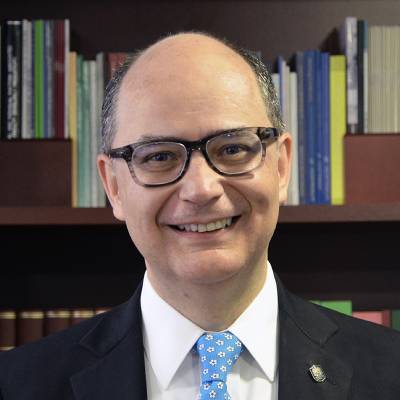 General Secretary of the Pontifical Javeriana University; Sectorial Coordinator of the Global Compact on Education
General Secretary of the Pontifical Javeriana University; Sectorial Coordinator of the Global Compact on EducationJairo Humberto Cifuentes Madrid
Lawyer, with specializations in Commercial Law and Socio-Economic Sciences, from the Pontificia Universidad Javeriana, Colombia, and an MBA from the University of Miami.
At the Pontificia Universidad Javeriana he has been a member of the Council of Regents and served as General Academic Director of the Cali branch, Academic Vice Rector, and Rector´s Advisor in Bogotá. He is the current General Secretary of the University, the co-leader of the Javeriana Symposium on the Encyclical Letter Laudato si’ and the responsible for the Global Compact on Education (integral ecology).
Currently, he is also President of the Higher University Council of the Fundación Universitaria CAFAM and President of the Board of TELESCOPI: Network of Observatories of Good Practices of University Strategic Management in Ibero-America.
He is an evaluator and consultant on university government issues. Author of articles and book chapters on higher education topics, and an academic editor of the books: “Strategic Management of Universities in the Ibero-America Region – A comparative perspective” (Springer) and of “University Government Affairs” (Editorial Javeriana)
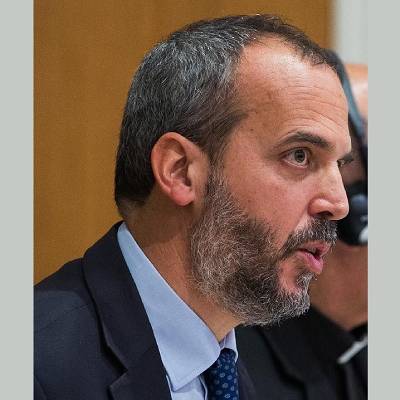 Coordinator of the “Laudato Si’ Observatory” of the Pontifical Gregorian University
Coordinator of the “Laudato Si’ Observatory” of the Pontifical Gregorian UniversityPaolo Conversi
Paolo Conversi, Ph.D., is Coordinator of the Laudato Si’ Observatory of the Faculty of Social Sciences of the Pontifical Gregorian University, Rome, where he teaches „Integral Ecology“ and „Economics“. He also teaches „International Environmental Law“ and „History of Economic Thought“ at the Pontifical Lateran University. He graduated in Economics from La Sapienza University of Rome and in Social Sciences from the Pontifical Gregorian University. He then earned a Ph.D. in Social Sciences from the Pontifical Gregorian University and a Ph.D. in Economics from Roma Tre University. After taking part in development and humanitarian projects in Mexico, Colombia and Bosnia and Herzegovina, he became an Official of the Section for Relations with States of the Secretariat of State of the Holy See. He has been a member of numerous Holy See’s delegations to various international meetings, dealing with sustainable development, climate change, disarmament and humanitarian assistance.
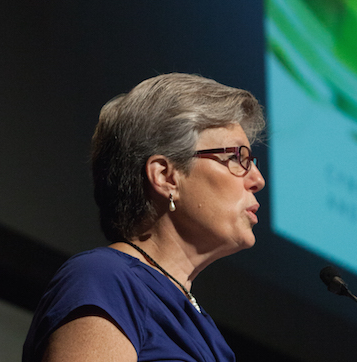 Professor of Christian ethics and theology, School of Theology, University of the South, Sewanee
Professor of Christian ethics and theology, School of Theology, University of the South, SewaneeCynthia S.W. Crysdale
Dr. Cynthia S.W. Crysdale is an Anglican theologian and professor of Christian ethics and theology at the School of Theology at the University of the South, Sewanee, USA. She graduated from York University in Toronto, Canada, with a B.A. degree in psychology and earned an M.A. and Ph.D. in theology from St. Michael’s College in the University of Toronto. Crysdale specializes in foundational theology and ethics with an expertise on the work of Roman Catholic theologian, Bernard Lonergan. She has a long-standing commitment both to ecumenism and the ecological movement. She co-authored Creator God Evolving World, (Fortress Press, 2013), and articles such as, “God, Evolution and Astrobiology,” in Exploring the Origin, Extent, and Future of Life (Cambridge: Cambridge Univ. Press, 2009.) Other publications include, “Lonergan and Feminism,” Theological Studies 53 (1992), and, Transformed Lives: Making Sense of Atonement Today (New York: Church Publishing, 2016).
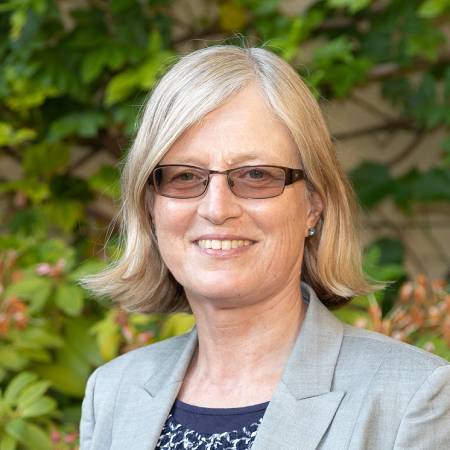 Director of the Laudato Si’ Research Institute, Campion Hall, University of Oxford
Director of the Laudato Si’ Research Institute, Campion Hall, University of OxfordCelia Deane-Drummond
Celia Deane-Drummond is currently Director of the Laudato Si’ Research Institute and Senior Research Fellow in theology at Campion Hall, University of Oxford. She is also honorary visiting Professor in Theology and Science at the University of Durham, UK. Her work at the interface of theology, ethics and the biological and human sciences stems from her prior academic experience in plant physiology as well as theology. She is a trustee of the International Society for Science and Religion (ISSR). She was chair of the European Forum for the Study of Religion and Environment from 2011-2018. She is editor of the journal Philosophy, Theology and the Sciences. She is widely recognised internationally as a public speaker and has published hundreds of articles in academic and other journals. Her recent book publications include The Wisdom of the Liminal: Human Nature, Evolution and Other Animals (2014), Technofutures, Nature and the Sacred, ed. with Sigurd Bergmann and Bronislaw Szerszynski (2015), Ecology in Jürgen Moltmann’s Theology, 2nd edition, (2016), Religion in the Anthropocene, edited with Sigurd Bergmann and Markus Vogt (2017), Theology and Ecology Across the Disciplines: On Care for Our Common Home, edited with Rebecca Artinian Kaiser (2018), The Evolution of Wisdom Volume I: Theological Ethics Through a Multispecies Lens (2019) and Shadow Sophia: The Evolution of Wisdom Volume II (2021).
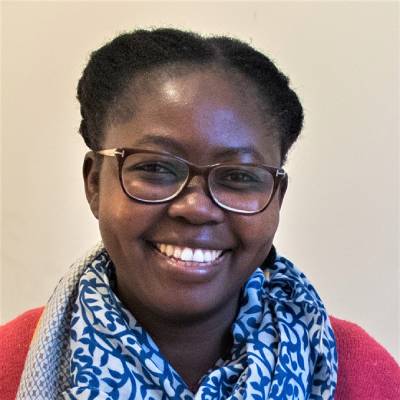 Research associate at the Theology Institute of the Society of Jesus (ITCJ), Ivory Coast
Research associate at the Theology Institute of the Society of Jesus (ITCJ), Ivory CoastNoélie Djimadoumbaye
Noëlie Kemneloum Djimadoumbaye is a Chadian Xavière Sister and a doctoral student at Centre Sèvres (Jesuit Faculties of Paris). She specializes in Ethics and Governance and in Urban Geography. She is a research associate at the Research Department of the Institute of Theology of the Society of Jesus (ITCJ) in Abidjan (Ivory Coast) and a member of the Centre for Research and Social Action (CERAS) in Paris. Her publications include: Lumière dans notre nuit. Recueil des messages de l’épiscopat tchadien de 1965 à 2020, ITCJ/CEFOD: 2021 ; “Crise du covid-19 et crise écologique: quelles résonances?” in Nathalie Becquart, Geneviève Comeau et al., C’est maintenant le temps favorable. Cinq regards de femmes sur la crise, Paris, Editions Emmanuel: January 2021; and with Hélène Noisette, “À l’heure de la mobilisation des cathos écolos” in Revue Projet 2020/2, n° 375.
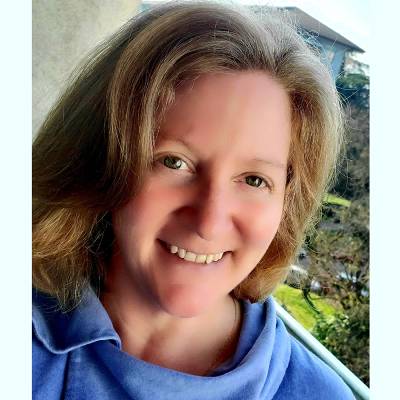 International Justice, Peace and Integrity of Creation Coordinator for Columban Missionaries
International Justice, Peace and Integrity of Creation Coordinator for Columban MissionariesAmy Woolam Echevarria
Amy Woolam Echeverria currently serves as the International Justice, Peace, and Integrity of Creation Coordinator for Columban Missionaries and Co-coordinator of the Ecology Taskforce of the Vatican Covid-19 Commission. In recent years, she has contributed to the founding of international networks and projects such as the Laudato Si’ Movement, Laudato si’ International Tertiary Scholars Network (LISTEN), the Ecclesial Network for the Panamazon (REPAM) and the Rivers above Asia and Oceania Ecclesial Network (RAOEN). She has served on several Boards and Steering Committees for national and international organizations and coalitions dedicated to peace, social and environmental justice. Amy Woolam Echeverria holds a Master degree in Spirituality with an emphasis is Ecotheology.

© PIK/Ausserhofer
Ottmar Edenhofer
Ottmar Edenhofer is director and chief economist at the Potsdam Institute for Climate Impact Research (PIK) and director of the Mercator Research Institute on Global Commons and Climate Change (MCC). Furthermore, he is professor at the Technical University of Berlin and considered one of the world’s leading experts on the economics of climate change. He holds a Master’s Degree in Economics and completed his doctorate at the Technical University Darmstadt. His memberships include, among others, the German Academy of Science and Engineering acatech and the German Academy of Sciences Leopoldina. From 2008 to 2015, Ottmar Edenhofer served as Co-Chair of Working Group III of the Intergovernmental Panel on Climate Change (IPCC). Edenhofer’s scientific expertise is sought by policy and international organizations likewise. He has published articles in a number of peer-reviewed journals and authored a number of books. The fourth year in a row, Ottmar Edenhofer belongs to the 1% of the most cited scientists worldwide in the category „interdisciplinary science“ according to the Web of Science citation index.
Selected publications:
Roolfs, C., Gaitan, B., & Edenhofer, O. (2021): Make or brake — Rich states in voluntary federal emission pricing. Journal of Environmental Economics and Management, 102463, doi: 10.1016/j.jeem.2021.102463.
Kornek, U., Klenert, D., Edenhofer, O., & Fleurbaey, M. (2021): The social cost of carbon and inequality: When local redistribution shapes global carbon prices. Journal of Environmental Economics and Management, Vol. 107, 102450, doi: 10.1016/j.jeem.2021.102450.
Strefler, J., Luderer, G., Bauer, N., Kriegler, E., Pietzcker, R. C., Giannousakis, A., & Edenhofer, O. (2021): Alternative carbon price trajectories can avoid excessive carbon removal. Nature Communications, Vol. 12, 2264, doi: 10.1038/s41467-021-22211-2.
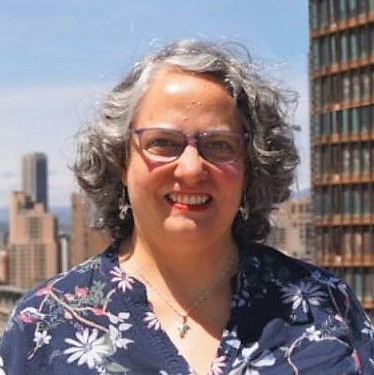 Vicepresident of Extension and Interinstitutional Relations, Pontifical Javeriana University
Vicepresident of Extension and Interinstitutional Relations, Pontifical Javeriana UniversityMaría Adelaida Farah-Quijano
María Adelaida Farah-Quijano, Ph.D., is the Vice-president of Extension and Inter-Institutions Relations at Pontificia Universidad Javeriana (Bogotá, Colombia). During the last 7 years, she was the Dean of the Faculty of Environmental and Rural Studies at the same University. She has been working for 30 years at this University as professor, researcher and in academic direction positions. She studied her undergraduate in Economics and her M.Sc. Program in Rural Development at Javeriana University, and received her Ph.D. degree in Development Studies at University of East Anglia (England). She is an interdisciplinary researcher and professor interested in rural development, gender issues, sustainable development, and integral ecology. She has 48 academic publications, and she has participated in 33 research projects with both national and international colleagues and in more than 100 academic events. Also, she has been director of 30 dissertations and theses of both undergraduate and postgraduate students.
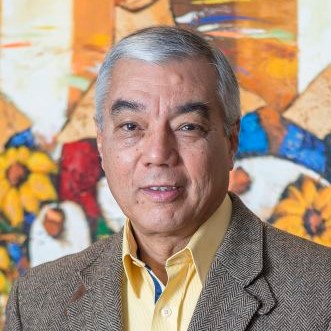 Professor at the School of Economics and Administrative Sciences, Pontifical Javeriana University
Professor at the School of Economics and Administrative Sciences, Pontifical Javeriana UniversityCésar Ferrari
César Attilio Ferrari is an economist with experience in the analysis and design of economic policies, financial and micro-financial development, regional development and overcoming poverty; in the relationship between ethics and economics; in the design and application of economic and financial models; and in economic research and teaching. His professional experience has been developed in various countries, in public and private organizations, academics, business, national and international.
Dr. Ferrari holds a Ph.D. in Economics and a master’s degree in Economic Development both from Boston University, a master’s degree in Urban Planning from New York University, and a Civil Engineer degree from the Pontifical Catholic University of Peru.
Presently, Dr. Ferrari is Professor of Economics of the Pontifical Universidad Javeriana in the Department of Economics, in Bogota, Colombia. Formerly, he has been the International Monetary Fund (IMF) Advisor to the Central Bank of Angola and to the Central Bank of Guinea-Bissau on economic, monetary, exchange, financial and fiscal policies. Dr. Ferrari was Member of the Board and Chief Executive Officer of the Central Bank of Peru, Technical Director of the Peruvian National Institute of Planning, Deputy General Manager of Retex Peruana and Financial and Administrative Manager of COFIDE Investment of Peru. He has been professor and lecturer in several Latin American and European universities. He is a member of the Colombian Academy of Economic Sciences.
Dr. Ferrari has written and edited several books and articles on economic and financial issues. His last books are: “Economic Policy, Theory and Practice from the Markets, Capitalism, Crisis, Changes and Evolution in the 21st Century”; “Finance and microfinance for development”; “Urbanization for Human Development” with Alfredo Bateman, Jon García and Fabio Giraldo; “Habitat and the Challenge of Microfinance” with Alfredo Bateman and Fabio Giraldo; “Economic Analysis in General Equilibrium”, coauthor, and editor; “Conversations on Economics” with Andrés Cifuentes; and “Economic Policy and Markets”.
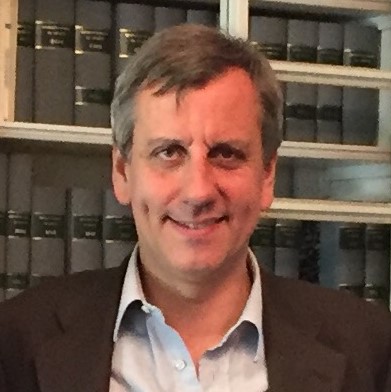 Professor of Civil Law, University of Macerata
Professor of Civil Law, University of MacerataFrancesco Gambino
Francesco Gambino is a jurist, who is currently Full Professor of Civil Law at the University of Macerata, as well as a member of the Governing Board of the ‘Giacomo Leopardi’ School of Advanced Studies. He has a PhD in Civil Law from the University of Turin, which he obtained after completing his law degree at Sapienza University of Rome. He was invited by Yale University’s School of Law to research United States contract law, and spent the first stage of his professional career at an international law firm in London.
He is the author of “Il rapporto obbligatorio” (first edition; 2015), a book which is part of the “Trattato di Diritto Civile” series and edited by R. Sacco. Francesco has also written two monographs, “Problemi del rinegoziare” (2004) and “Normalità dell’alea e fatti di conoscenza” (2001), published in the Sapienza University of Rome “Studi di Diritto Civile” series and edited by N. Irti and P. Rescigno. With Alberto Febbrajo, he co-edited the book “Il diritto frammentato” (2013), dedicated to the thinking of Gunther Teubner. Francesco has written encyclopaedia entries and other papers and articles on civil law, comparative law, sociology of law, and general theory of law, some of which have been translated into English, French, Spanish, Portuguese and Chinese.
The papers he has written include “Normative Control of Environmental Risk in the Chinese Civil Code”, which he delivered at the Sino-European Conference on Chinese Civil Code (22 September 2019; Renmin University of China, Beijing). Francesco was also keynote speaker at the National Congress of the Association of Italian Civil Law Scholars, which opened with a greeting by the Prime Minister, delivering the paper “Il rinegoziare delle parti e i poteri del giudice” (15 June 2019; Roma Tre University). The discussion focused on the draft delegated act N. 1151, drafted by the government, on the review and integration of some institutions regulated by the Civil Code. As a member of the panel of speakers at the “Innovation and Transition in Law” round table, Francesco presented his paper entitled “Latent Innovations in a Legal System and Civil Law Categories” (5 November 2019; University of Brasilia).
Francesco is a member of the Associazione Civilisti Italiani (Association of Italian Civil Law Scholars), the Association Henri Capitant des amis de la culture juridique française (Henri Capitant Association of Friends of the French Legal Culture), the Unione dei Privatisti (Union of Private Law Experts) and the Italian Society for Law and Literature (ISLL).
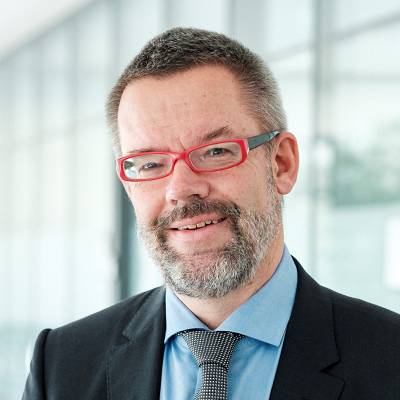
© University of Passau
Werner Gamerith
Werner Gamerith is a fully trained geographer. After studying geography and geobotany at the Universities of Salzburg and Innsbruck (Austria), he graduated with a diploma thesis in quaternary research in 1991. Two years later and after studies at the Universities of Graz and Klagenfurt, he graduated from the University of Salzburg with a doctoral degree in ethnic minority research. From 1993 to 2004, he was in the Geography Department at the University of Heidelberg, completing his postdoctoral research in social and cultural geography with an American focus. Since 2004, Werner Gamerith is Professor of Regional Geography at the University of Passau, where he actively engages in academic committee work (Dean, Speaker of the Academic Senate). From 2014 to 2021, he was President of the German Association for Geography (DGfG). In the University of Passau, he has been in charge of sustainability since 2020.
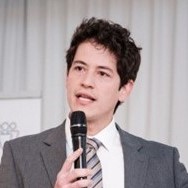 Project Lead of Connective Cities, Competence Centre for Local Development Coopera- tion/Engagement Global
Project Lead of Connective Cities, Competence Centre for Local Development Coopera- tion/Engagement GlobalThiago Garcia
Thiago Garcia has more than 15 years of working experience on sustainable development issues including climate change adaptation and mitigation projects, implementation of renewable energy infrastructure in developing countries, regional development, and water/environmental policies. At the Potsdam Institute for Climate Impact Research – PIK, in Germany, Thiago led a climate capacity-building project funded by the German Environmental Ministry together with three developing countries. At Engagement Global he currently leads the Connective Cities project, an international community of practice for sustainable development and cooperation for municipalities. He has researched and written on official development assistance, multilevel governance of climate policies, and regional development during his Master’s research at the United Nations University in Maastricht, The Netherlands. Thiago also has substantial experience working with subnational governments and environmental agencies on energy infrastructure and environmental policy, including as president of the technical chamber at the State Water Council of Minas Gerais/Brazil.
Recent Relevant Publications:
- Garcia, T. et al. (2021). The Fellowship Model: Faith, Sacrifice and Transformation. Yale Forum on Religion and Ecology. March 2021
- Garcia, T. et al. (2018). M2020 – A Mission for the Planet, A Mission for Europe. Green European Journal. June 2018.
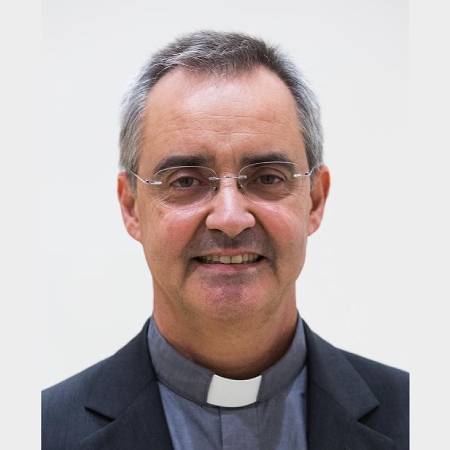 Rector of the Pontifical Gregorian University
Rector of the Pontifical Gregorian UniversityNuno da Silva Gonçalves, S.J.
Father Gonçalves was born in 1958 in Lisbon (Portugal). He joined the Society of Jesus in 1975 and was ordained a priest in 1986.
He obtained a License in Philosophy and Literature (Catholic University of Portugal, 1981), a License in Theology (Pontifical Gregorian University, 1988), a License in History of the Church (Pontifical Gregorian University, 1991) and a Doctorate in Church History (Pontifical Gregorian University, 1995).
From 1994 to 2000, he was a member of the Editorial Board of Brotéria and from 1998 to 1999, Director of the National Office for Cultural Heritage of the Church of the Portuguese Bishops‘ Conference.
In October 2000 he was appointed Dean of the Faculty of Philosophy of the Catholic University of Portugal, a position he held until June 2005. From July 2005 to July 2011, he held the office of Provincial Superior of the Portuguese Province of the Society of Jesus.
In October 2011 he was sent to Rome, to the Pontifical Gregorian University, as a member of the teaching staff of the Faculty of History and Cultural Heritage of the Church. On March 6, 2012 he was appointed Director of the Department of Cultural Heritage of the Church and on October 24, 2012 he held the office of Dean of the same Faculty of History and Cultural Heritage of the Church.
He is a member of the Center for Religious History Studies of the Catholic University of Portugal since 1994 and of the Portuguese Academy of History since 1996.
On 2016 Pope Francis has appointed Father Gonçalves as the Rector of the Pontifical Gregorian University in Rome, since September 1, 2016.
On July 23, 2018 the President of the Republic of Portugal, Marcelo Rebelo de Sousa, conferred on Father Gonçalves the honor of the Order of St James of the Sword, to the rank of Grand Officer.
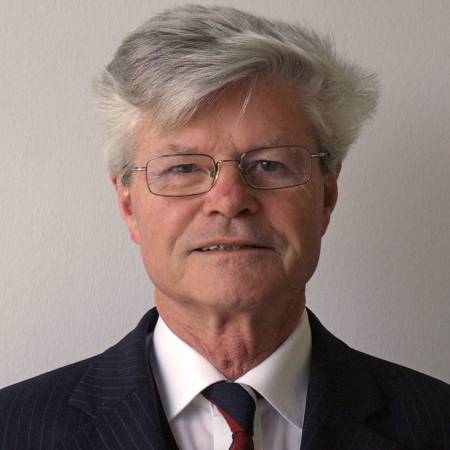
© Max-Planck-Institut f. Meteorologie
Hartmut Graßl
Hartmut Graßl is a physicist working in climate research since 1966. His main research fields have been radiative transfer in the atmosphere with a focus on clouds, aerosol influence on clouds, remote sensing of water cycle components from space and the ground. In addition, he was an adviser to the government and the parliament on climate matters. From 1994 to 1999, he has been the director of the World Climate Research Programme at WMO in Geneva.
At present, he is still working at the Max Planck Institute for Meteorology in Hamburg, Germany, as one of the former directors. He is actively engaged in the Federation of German Scientists.
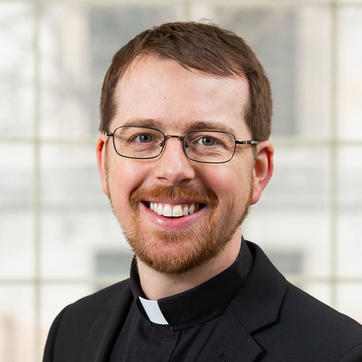
© AH / Photo by Moussa Faddoul of fotoreflection.com
Adam D. Hincks, S.J.
Adam D. Hincks, S.J., is a Jesuit priest and an assistant professor in the Dept. of Astronomy & Astrophysics and St. Michael’s College, University of Toronto, where he is the inaugural holder of the Sutton Family Chair in Science, Christianity, and Cultures. He is an adjunct scholar of the Vatican Observatory. He received a bachelor’s degree in astronomy and physics from the University of Toronto and a doctorate in physics from the Princeton University, and has also done studies in philosophy at Regis College (Toronto), a Bachelor of Sacred Theology at the Gregorian University, and a Master of Theology and licentiate in sacred theology at Regis College. Recent publications include articles in The Astrophysical Journal, Monthly Notices of the Royal Astronomical Society and Method: Journal of Lonergan Studies.
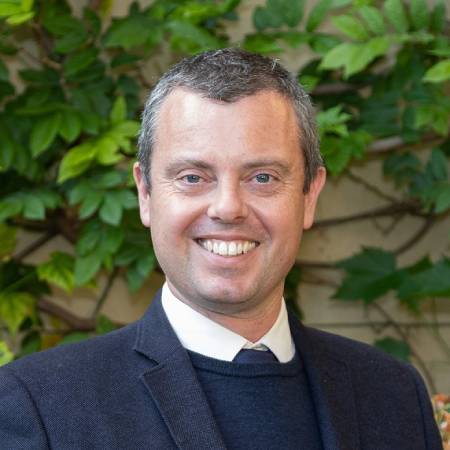 Assistant Director in Research Programming, Laudato Si’ Research Institute, Campion Hall, University of Oxford
Assistant Director in Research Programming, Laudato Si’ Research Institute, Campion Hall, University of OxfordTimothy Howles
The Rev’d Dr. Timothy Howles is Assistant Director for Research Programming at the Laudato Si’ Research Institute and Junior Research Fellow in Political Theology, Campion Hall, University of Oxford. After degrees in English and French Literature at the University of Cambridge, and then International Politics at the LSE, Tim studied theology at the University of Oxford, completing his doctorate in 2018. His research lies at the intersection of politics, theology and philosophy, with a special focus on our understanding of the planetary crisis. He has written substantially on the work of French theorists Bruno Latour and Michel Serres, and more recently on the British scientist James Lovelock. Tim is currently involved with a project at the LSRI investigating attitudes to gene drive technologies in South American countries.
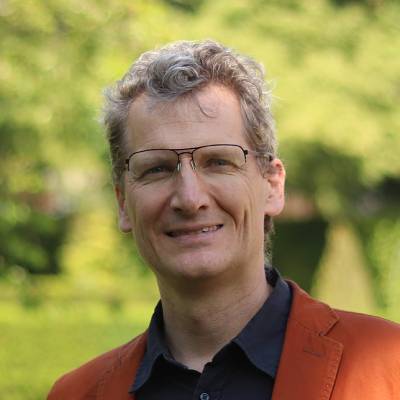 Chair of Theology in Transformational Processes, Catholic University of Eichstätt-Ingolstadt
Chair of Theology in Transformational Processes, Catholic University of Eichstätt-IngolstadtMartin Kirschner
Martin Kirschner, Ph.D., holds the chair for Theology in Transformational Processes and is director of the KU Center for Religion, Church and Society in Transformation (ZRKG) at the Catholic University of Eichstätt-Ingolstadt.
Born in Bad Kreuznach, he has four children and is a permanent deacon. After studying Catholic theology (Diplom) and political sciences (M.A.) in Trier and Tübingen, he received his doctorate in Tübingen with a thesis on the social form of the church in late modern times. From 2001 to 2006 he was a research assistant to Prof. emer. Dr. Dr. h.c. Peter Hünermann, then from 2006 to 2011 assistant at the chair of dogmatics of Prof. Dr. Thomas Freyer in Tübingen. After his retirement, he administered the chair of dogmatics from 2012 to 2016 as private lecturer. His Habilitation in 2011 was on the topic: “God – greater than thought. The Transformation of Reason from the Encounter with God with Anselm von Canterbury”. After becoming a grant holder of the Heisenberg-Programme of the “Deutsche Forschungsgemeinschaft” (DFG) in 2015, he established the new Chair for Theology in Transformational Processes as the first Heisenberg-Professorship in Catholic Theology. His main research interests include the doctrine of God and ecclesiology, theological rationality and epistemology, political and public theology, transformation, and liberation theologies.
 Holy See’s Dicastery for Pro- moting Integral Human Deve- lopment; Chair of Philosophy of Science at UPS, Rome
Holy See’s Dicastery for Pro- moting Integral Human Deve- lopment; Chair of Philosophy of Science at UPS, RomeJoshtrom Isaac Kureethadam
Joshtrom Isaac Kureethadam is Coordinator of the Sector of “Ecology & Creation” at the Vatican Dicastery for Promoting Integral Human Development. He is also Chair of Philosophy of Science and Director of the Institute of Social and Political Sciences at the Salesian Pontifical University in Rome. He has been particularly associated with the study and diffusion of Laudato Si’. His most recent publications include Creation in Crisis: Science, Ethics and Theology (Orbis Books, 2014), The Philosophical Roots of the Ecological Crisis (Cambridge Scholars, 2017), The Ten Green Commandments of Laudato Si’ (Liturgical Press, 2019).
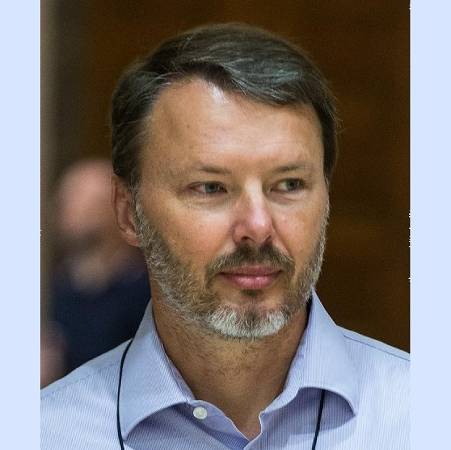 Pro-Dean of the Faculty of Social Sciences, Pontifical Gregorian University
Pro-Dean of the Faculty of Social Sciences, Pontifical Gregorian UniversityPeter Lah
Peter Lah S.J. (Ph.D. in Communication Studies, Northwestern University, 2004) is associate professor (professore straordinario) at the Pontifical Gregorian University where, since 2011, he has been teaching courses in media studies and journalism at the Faculty of Social Sciences. In recent years his interest expanded to questions of media literacy and organizational communication which he has been teaching both at the University and to interested groups outside. Between 2008 and 2011 he held teaching and administrative positions at the Faculty of Media in Ljubljana and at Faculty of applied social sciences in Nova Gorica, Slovenia. From 2004 to 2007 he was assistant professor at Saint Louis University, Missouri.
His recent publications include Navigating hyperspace: A comparative analysis of priests’ use of Facebook (Resource Publications 2021) and “The scandal of secrecy” (Gregorianum 2020).
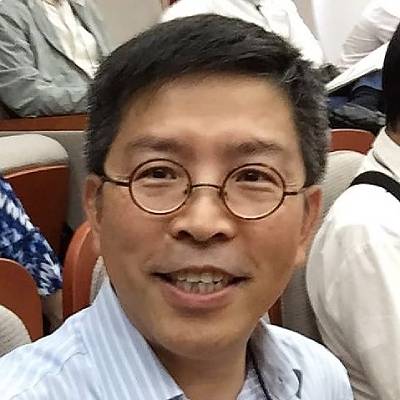 International Justice, Peace and Integrity of Creation Coordinator for Columban Missionaries
International Justice, Peace and Integrity of Creation Coordinator for Columban MissionariesAnselm Lam
Dr. Anselm Lam received his licentiate in Philosophy from the Pontifical Gregorian University in Rome and his Doctorate in Political Science from the Boston College in the United States. He has been an Assistant Professor of the Department of Social Science in Hang Seng University of Hong Kong for nine years. His research interest covers Political Philosophy and Catholic Social Ethics. He is the Director of the Centre for Catholic Studies in The Chinese University of Hong Kong.
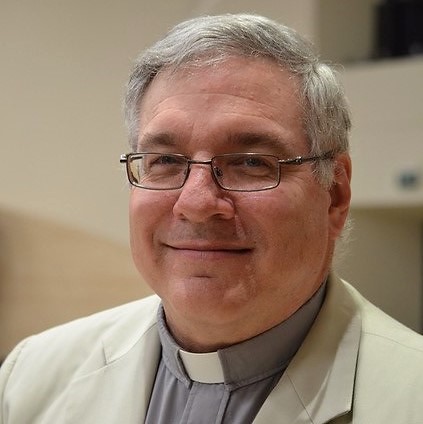
© Office of Communications, Pontifical Gregorian University
Mark A. Lewis, S.J.
Mark Lewis is currently the Academic Vice Rector of the Pontifical Gregorian University. He obtained the licentiate in both Philosophy (St. Louis University) and Theology (Regis College, Toronto) as well as a Ph.D. in History from the University of Toronto in 1995. He was a member of the Jesuit Historical Institute (IHSI) in Rome for 10 years from 1995 to 2004. As Director of the Institute, he oversaw the completion of the Diccionario Histórico de la Compañía de Jésus. He also served as Provincial Superior of the New Orleans Province of the Society of Jesus. His primary area of research is the early Society of Jesus and its educational institutions.
 Professor of Geography, Catholic University of Eichstätt-Ingolstadt
Professor of Geography, Catholic University of Eichstätt-IngolstadtAnne-Kathrin Lindau
Prof. Dr. Anne-Kathrin Lindau is the Chair of Geography Didactics and Sustainable Development Education (ESD) at the Catholic University of Eichstätt-Ingolstadt (KUEI) (Germany) since 2019. She also holds the position of „Sustainability Coordinator“ at KUEI. After studying geography and German as teaching subjects and gaining sound practical experience at various schools, she was active in research and teaching students in geography didactics and ESD. In teaching, she is committed to increasing the implementation of ESD in schools and teacher training. Her research interests focus on the professionalisation of teachers, climate change education, service learning as well as wilderness education, e.g. through field trips with geography students with a special focus on ESD.
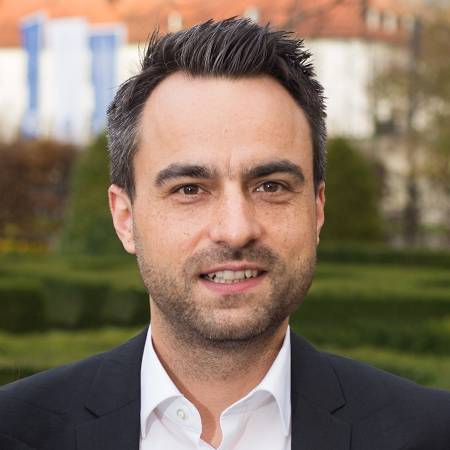
© KU/Christian Klenk
Christian Meier
Christian Meier is research assistant at the Catholic University of Eichstätt-Ingolstadt (KU, Germany) since 2016, since 2020 at the Chair of Geography Didactics and Education for Sustainable Development (ESD). He is PhD candidate at the Faculty of Business and Economics. Since 2016, he manages the Project “Laudato Si’ – The papal encyclical in discourse for a Great Transformation towards sustainability” of the KU and the Federation of German Scientists (VDW). He was coordinator of the „KU.Sustainability Research Lab“ for two years. He studied languages, economics, and cultural studies at the University of Passau (Germany), spent one year of study and work in Rome (Italy) and obtained a degree as “Diplom-Kulturwirt” in 2008. From 2010 to 2014, he worked as leader of study programmes in business management at “Campus M21” at Munich. He is co-editor of three books and volunteers for several initiatives. His PhD thesis addresses the role of institutional logics for organizational competencies in sustainability transitions.
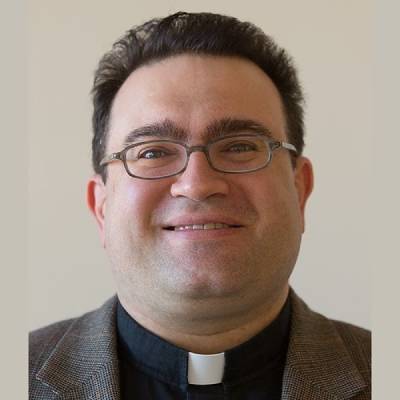 Associate professor, Department of Moral Theology, Pontifical Gregorian University
Associate professor, Department of Moral Theology, Pontifical Gregorian UniversityRené Micallef, S.J.
René Micallef SJ, STD, is a Maltese priest and member of the Society of Jesus. He lives in Rome and is an Associate Professor of Moral Theology and Social Ethics at the Faculty of Theology of the Pontifical Gregorian University, specializing in topics such as migration, conflict, human rights and the sources of moral reasoning. He holds an undergraduate degree in Biology and Chemistry (University of Malta), with a focus on disturbed benthic ecosystems; graduate degrees in Philosophy (University of London) and Theology (Facultés Jésuites de Paris; Universidad Pontificia Comillas – Madrid). His doctoral work in Sacred Theology, defended at Boston College (2013), focused on the ethics of migration policies. In 2020, he published, with Rocco D’Ambrosio, Diritti umani: un’eredità viva: Piccolo lessico per l’etica pubblica (G&B Press, Rome).
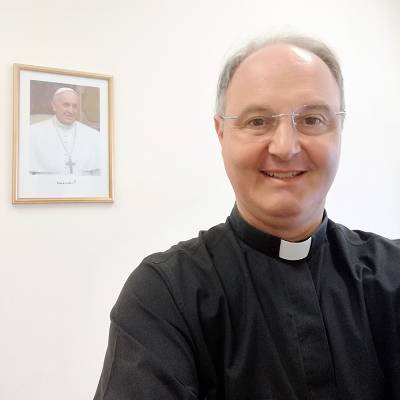 Under-Secretary Adjunct of the Pontifical Council for Culture
Under-Secretary Adjunct of the Pontifical Council for CultureCarlo Maria Polvani
Mons. Carlo Maria Polvani, Adjunct Sub-Secretary of the Pontifical Coulcil of Culture since July 26th, 2019, was born in Milan on July 28th, 1965. Educated in the Istituto Leone XIII and then in the Collège Stanislas, he earned a Baccalauréat Français Section Scientifique avec mention in 1982. Enrolled in the Department of Biochemistry at McGill University (Montréal, Canada), he received in 1985 a B.Sc. with honours and in 1990 a Ph.D. He was placed on the Dean’s honour list, for his research on the enzymatic mechanism of the Sodium Potassium ATPase. After a Master of Divinity with distinction, in 1993 at the Weston School of Theology in Cambridge, Massachusetts, he received from the Pontifical Gregorian University in Rome, a License summa cum laude in Canon Law in 1995 and a Specialization summa cum laude in Jurisprudence and Forensic Psychology in 1996. Admitted in the Pontifical Lombard Seminary in Rome, he was ordained a presbyter for the Archdiocese of Milan by His Eminence Cardinal Carlo Maria Martini on February 14th 1998 and completed his Doctorate in Canon Law summa cum laude in 1999 with the examination of a distinctively canonical institution: the authentic interpretation of laws. Enrolled in the Pontifical Ecclesiastical Academy in Rome, he was destined to the Diplomatic Service of the Holy See, on July 1st 1999, to serve as Secretary in the Apostolic Nunciature in México. He was then called to the Secretariat of State and, since 2007, he is in charge of the Information and Documentation Office in the Section for General Affairs, as well as being the Representative of the Holy See in the Government Advisory Committee of the Internet Corporation for Assigned Names and Numbers (ICANN). He collaborates with the L’Osservatore Romano with articles on mathematics, science and technology.
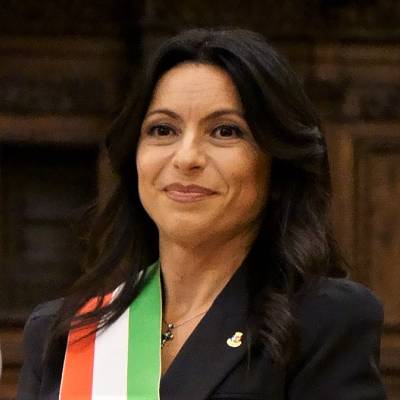 Mayor of Assisi, Italy, Assoc. Professor of Energy Systems and Internal Combustion Engines, Marconi University
Mayor of Assisi, Italy, Assoc. Professor of Energy Systems and Internal Combustion Engines, Marconi UniversityStefania Proietti
Stefania Proietti has been the Mayor of Assisi since June 2016.
Master’s degree in Mechanical Engineering – Energy (AY 1999/00) at University of Perugia and PhD in Industrial Engineering in 2004, Former University Professor in Perugia and Rome. Author of over 60 scientific publications and inventor of patents in the energy and environmental sector, winner of European projects and tenders, coordinator of research projects and speaker at national and international conferences. Energy manager and energy certifier of buildings, former ASME member (American Society of Mechanical Engineers), AIEE (Italian Association of Energy Economists), IAEE (International Association for Energy Economics), IN/ARCH (National Institute of Architecture), DESIGN THE FUTURE, SORELLA NATURA Foundation. Her Research activities are focused in the following sectors: climate change mitigation, sustainability, Life Cycle Assessment e Carbon Footprint, energy systems, renewable energy and energy efficiency, energy and environmental markets, financial systems for sustainability, carbon management, carbon storage.
Between her activity as Mayor of the Seraphic City of Saint Francis, she is speaker at: International Climate Conferences of the United Nations (COP22, COP23 and COP24, ICCLEI member as an observer at the United Nations, invited to the Global Climate Action Summit international conference (San Francisco, September 2018), invited to report on the issues of Environment and Peace at a national and international level, Elected Vice President of the City Association for the Fraternity (February 2019).
Stefania Proietti is Formerly Delegated by the Italian Episcopal Conference (CEI) as responsible for environmental issues at the Council of European Bishops‘ Conferences (Consilium Conferentiarum Episcoporum Europae, CCEE) and Former member of the CEI (Italian Episcopal Conference) study group on the Custody of Creation.
She is a „tireless volunteer“ for the protection of creation and for sustainable and integral human development, with the aim of spreading these issues, with particular attention to young people and schools.
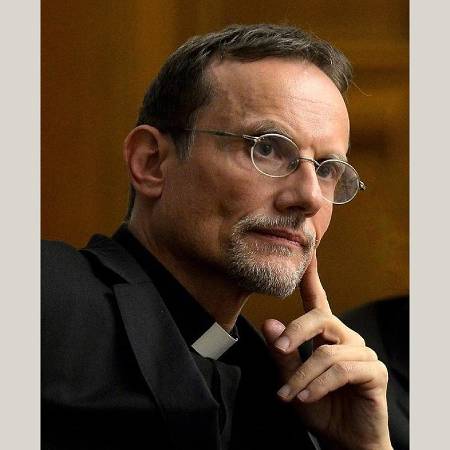 Dean of the Faculty of Theology of the Pontifical Gregorian University
Dean of the Faculty of Theology of the Pontifical Gregorian UniversityPhilipp Gabriel Renczes, S.J.
Father Philipp Gabriel Renczes is a German Jesuit, professor in systematic and patristic theology at the Pontifical Gregorian University (Rome) of which he is the current dean and invited professor at the Pontifical Oriental Institute and the Pontifical Institute „Augustinianum“ (Rome). From 2011-2017, he was director of the Cardinal Bea Center for Judaic Studies at the Pontifical Gregorian University.
Father Renczes graduated in History of Religion and Religious Anthropology from the Sorbonne (Paris, France) and in Theology from the Institut Catholique in Paris. An internationally renowned scholar of St. Maximus the Confessor, he has held professorships at Marquette University (Milwaukee) and Georgetown University (Washington, D.C.) and is frequently invited as a lecturer throughout the world. His numerous publications are devoted to theological anthropology of the Fathers, theology of grace and theology of the Jewish-Christian relationship.
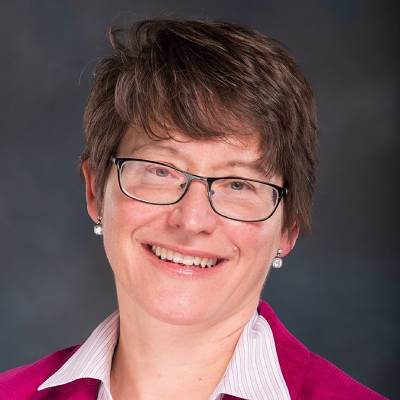 Professor of the Practice & Concentration Chair for Sci- ence, Technology & Internat. Affairs, Georgetown University
Professor of the Practice & Concentration Chair for Sci- ence, Technology & Internat. Affairs, Georgetown UniversityTheresa Sabonis-Helf
Theresa Sabonis-Helf is a Professor of the Practice in the Georgetown School of Foreign Service Master’s Degree program, and serves as the Inaugural Chair of the Science, Technology and International Affairs concentration. Prior to joining Georgetown, she was a Professor of National Security Strategy at the National War College in Washington DC. She has lived and worked in seven countries of the Former USSR, has assisted two nations with the development of their first National Security Strategies, has written a textbook on Caucasus regional energy issues, and has co-edited two volumes on Central Asia’s political and economic transition. She has also published and lectured extensively on energy security, climate change policies, post-Soviet energy and environmental issues, regional water politics, energy transition, and the politics of electricity. She is a frequent advisor to the US Department of State and USAID and is also a member of the Council on Foreign Relations. She holds a PhD in Political Science from Emory University, and an MPA in International Affairs from Princeton University.
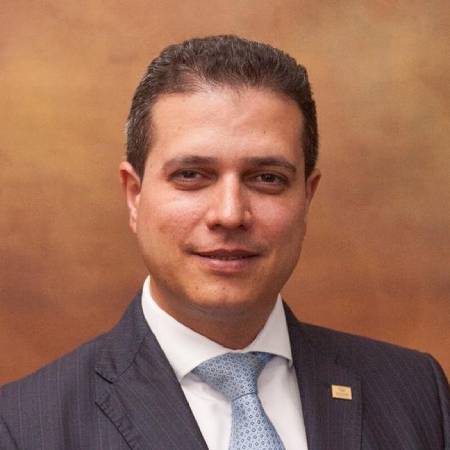 Rector of the Catholic University of Costa Rica
Rector of the Catholic University of Costa RicaFernando Felipe Sánchez Campos
Fernando Felipe Sánchez Campos has worked in the public sector as a diplomat, representing the Republic of Costa Rica as Ambassador to the Holy See (The Vatican), to the Sovereign Order of Malta, and as Permanent Representative to the United Nations Rome-based agencies (Food and Agricultural Organization—FAO—, International Fund for Agricultural Development—IFAD—, and the World Food Program—WFP—). Moreover, he was elected by popular vote as a Deputy to the Legislative Assembly, where he served as President to several central legislative commissions such as: the Permanent Commission for Social Welfare Affairs and the Special Permanent Commission on Foreign Affairs and International Trade.
In terms of academic experience, he has served as rector, professor, tutor, researcher, guest speaker, and consultant at several academic institutions such as the University of Costa Rica and INCAE Business School, as well as at the University of Oxford, the University of Salamanca, and the Catholic University of Valencia. In addition, he has worked as a consultant for the Inter-American Institute of Human Rights (IIHR), specifically at the Centro de Asesoría y Promoción Electoral (CAPEL). Nowadays he serves as Rector of the Catholic University of Costa Rica (UCAT), the official university of the Costa Rican Episcopal Conference (CECOR). Likewise, he is currently President of the Red de Universidades Católicas de América Central (RUCAC); Vice President of the International Federation of Catholic Universities (IFCU); Second Vice President of the Organización de Universidades Católicas de América Latina y el Caribe (ODUCAL), Mexico, Central America and the Caribbean sub-Region; and Vicepresident of the Asociación Unidad de Rectores de las Universidades Privadas de Costa Rica (UNIRE).
Mr. Sánchez holds a Ph.D. (D.Phil.) in Politics by the University of Oxford (UK), a master’s degree in Business Administration by INCAE Business School (Costa Rica), and a BA in Political Science by the University of Costa Rica. He has published nine books and has another one in press and has also written several chapters in different books and various academic articles. Likewise, he is a regular contributor for different newspapers of national scope in Costa Rica, and has been awarded several prizes, distinctions, and honors (in Costa Rica and abroad). Fernando Sánchez is a Spanish native speaker and also has fluent knowledge of English and Italian.
Mr. Sánchez was born in San José, Costa Rica, in January 13, 1974. He is a man of profound family values. Married to María del Milagro Linares-Martín, together they have two children: Fernando Felipe and María Pía. The Sánchez-Linares family are active members of Nuestra Señora de los Ángeles Parrish in Heredia, Costa Rica.
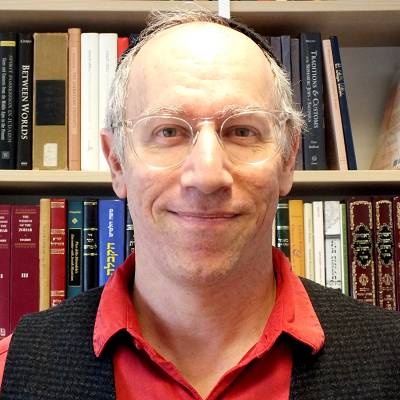 Professor for Jewish religious and intellectual History, School of Jewish Theology, University of Potsdam
Professor for Jewish religious and intellectual History, School of Jewish Theology, University of PotsdamJonathan Schorsch
Jonathan Schorsch serves as Professor of Jewish Religious and Intellectual History at Universität Potsdam. He holds a BA in Comparative Literature from Columbia University, an MA in Jewish Studies from the Graduate Theological Union and a PhD in History from the University of California-Berkeley. The most recent of his books is The Food Movement, Culture and Religion: A Tale of Pigs, Christians, Jews and Politics (New York: Palgrave, 2018). Other recent publications include “The Return of the Tribe: Jews, Counterculture and Native Americans,” Common Knowledge 27.1 (January 2021); “Looking for an Ecological God,” Ehyeh Asher Ehyeh, ed. Martin S. Cohen, Saul Berman and David Birnbaum (New York: New Paradigm Publishing, 2019), and “Sabbath for the Anthropocene Age,” One World – Many Faiths: Religious Contributions to Justice, Peace and the Integrity of Creation, Berliner Reihe für Mission, Ökumene und Dialog (Berlin: Wichern Verlag, 2019). He founded the Green Sabbath Project in 2019 and the Jewish Activism Summer School in 2016, both of which he directs.
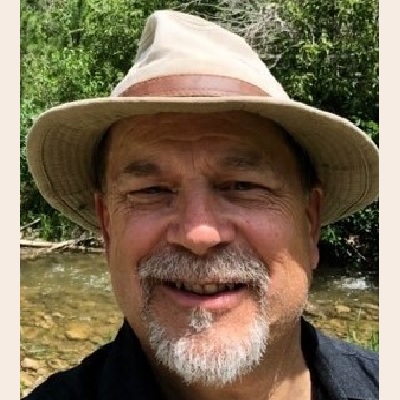 Professor of Theology and the School of Environmental Sustainability, Loyola University Chicago
Professor of Theology and the School of Environmental Sustainability, Loyola University ChicagoMichael Schuck
Michael Schuck, Ph.D., is a Professor of Roman Catholic Social Thought in the Department of Theology and a Professor of Environmental Justice in the School of Environmental Sustainability at Loyola University Chicago. He holds a doctoral degree in Ethics and Society from the University of Chicago where he also received master’s degrees in religious studies and political science. He is the Founding Director of the Joan and Bill Hank Center for the Catholic Intellectual Heritage at Loyola University and currently assists the Vatican Dicastery for Promoting Human Development with global university engagement in the Laudato Sí Action Platform. His research focuses on Roman Catholic social thought, theological and philosophical ethics, environmental justice theory and movements, and Indigenous studies. His published works include That They be One: Social Teaching of the Papal Encyclicals, 1740-1989 (Georgetown University Press, 1998), Democracy, Culture and Catholicism, with John Crowley Buck (Fordham University Press, 2015), and the online textbook on integral ecology, Healing Earth (https://healingearth.ijep.net).
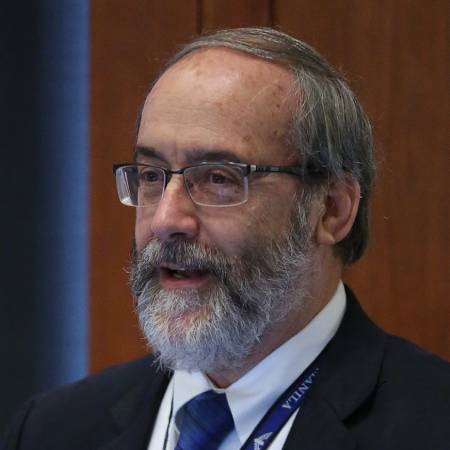 Associate Professor of Economics, Fordham University
Associate Professor of Economics, Fordham UniversityHenry Schwalbenberg
Henry Schwalbenberg is an Associate Professor of Economics at Fordham University where he also directs Fordham’s Graduate Program in International Political Economy and Development. Columbia University awarded him the PhD in economics, a Master of International Affairs, and a Bachelor of Science in Engineering. Professor Schwalbenberg has won two Fulbright Fellowships and several teaching awards. His previous research has focused on international trade, foreign aid, foreign investment, Philippine economic history, and Catholic Social Teaching. Currently, Dr. Schwalbenberg has been studying multidimensional measures of global poverty. He is the editor and research director of the annual report of Fordham’s Pope Francis Global Poverty Index.
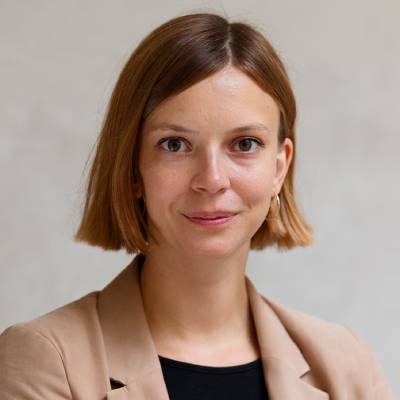 Co-leader of FutureLab – Security, Ethnic Conflicts and Migration, Potsdam Institute for Climate Impact Research
Co-leader of FutureLab – Security, Ethnic Conflicts and Migration, Potsdam Institute for Climate Impact ResearchBarbora Šedová
Dr. Barbora Šedová (co-)leads the FutureLab – Security, Ethnic Conflicts and Migration at the Potsdam Institute for Climate Impact Research (PIK). She earned her PhD in Economics at Mercator Research Institute on Global Commons and Climate Change in Berlin and the University of Potsdam and conducted research stays at Columbia and Yale University. In her work, Dr. Šedová analyses contextual effects of climate impacts on human (im)mobility and conflicts, applying econometrics, machine learning, GIS and systematic literature review. The overarching goal of her research is to improve adaptation strategies that minimize welfare losses in a changing climate. Dr. Šedová’s work has been published in peer-reviewed journals, including World Development and Global Environmental Change and covered by various media (e.g., Deutsche Welle).
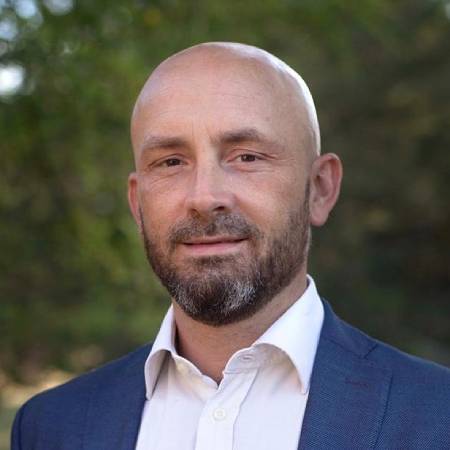 Undersecretary of Knowledge for Development, Strategic Affairs Secretariat, Presidency of the Republic of Argentina
Undersecretary of Knowledge for Development, Strategic Affairs Secretariat, Presidency of the Republic of ArgentinaRodrigo Rodríguez Tornquist
Rodrigo Rodriguez Tornquist is a specialist in climate change and sustainable development policies, with significant experience in international environmental negotiations, and current Undersecretary of Knowledge for Development at the Secretariat of Strategic Affairs of Argentina. Former Secretary of Climate Change, Sustainable Development, and Innovation at the Ministry of Environment and Sustainable Development of Argentina (2020-2021) and Chair of UN’s The 10-Year Framework of Programmes on Sustainable Consumption and Production (10YFP). He holds a bachelor’s degree in Political Science with a specialization in International Relations (Universidad Católica Argentina) and has completed postgraduate studies in Public Policy (Universidad de San Andrés) and in Environmental Management (Universidad de San Martín). He performed as a Research Fellow at the Massachusetts Institute of Technology (MIT) in 2013-2014. He acted as a member of the Steering Committee of the UN’s International Resource Panel (IRP), and in 2017 as President of the Executive Committee of the Latin American Platform for the Development of Low Emissions (LEDS LAC). In 2018, during the Argentinian Presidency of the G20, he served as the Co-Chair of the T-20’s Agenda 2030 Working Group. Between 2016-2018 he was the Director of the degree in Leadership for Transformation of the CAF-Development Bank of Latin America, and in 2019 he worked for UNEP’s subregional office as a technical advisor.
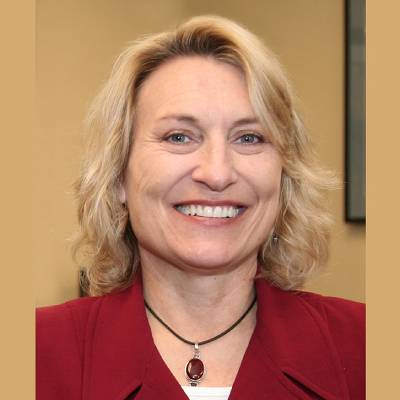 Dean of the School of Environmental Sustainability, Loyola University Chicago
Dean of the School of Environmental Sustainability, Loyola University ChicagoNancy Tuchman
Nancy C. Tuchman, Ph.D., is an Aquatic Ecologist studying human impacts on Great Lakes coastal wetlands with her Ecological Restoration Team. In 2002-03 she served as Program Officer at the National Science Foundation’s Ecosystem Studies Program, and was President of the International Society of Freshwater Science in 2009-10.
Tuchman’s career at Loyola University Chicago began in the Biology Department where she holds the rank of Professor. She served as Associate Provost for Research from 2004-08, and developed the University’s Office of Sustainability. From 2010-13 she served as Vice Provost where she designed the Institute of Environmental Sustainability with its new $58M building, and in 2013 the University President appointed her the Institute’s Founding Dean. In 2020 the IES was elevated to School status, and the new School of Environmental Sustainability has 460 students, 6 academic majors, 3 minors, and 2 Master’s Programs. Building sustainability at Loyola earned Tuchman the Chicago Magazine Green Award in 2013, and Chicago EcoChampion in 2018. In 2013, Loyola was ranked the 4th greenest college in the nation, and in 2015 the University ratified a Climate Action Plan to reach carbon neutrality by 2025. In 2018 Loyola was awarded the national Climate Leadership Award.
Tuchman’s work is greatly inspired by the Jesuit mission of social justice. She Chairs the International Association of Jesuit Universities’ Task Force on Environmental & Economic Justice. She and Dr. Michael Schuck co-edit the free online environmental science textbook entitled Healing Earth, which received the inaugural Expanded Reason Award from Pope Francis and the Vatican in 2017.
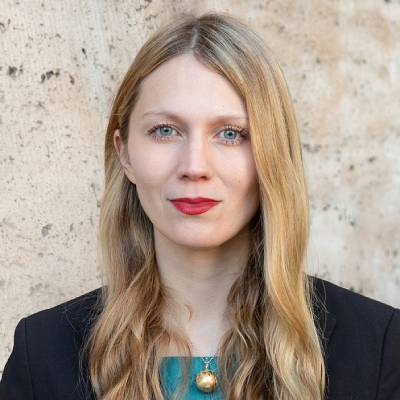
© DGAP/Zsófia Pölöske
Kira Vinke
Dr. Kira Vinke heads the Center for Climate and Foreign Policy at the German Council on Foreign Relations (DGAP). She co-chairs the Advisory Board to the German Federal Government on Civilian Crisis Prevention and Peacebuilding. Vinke is affiliated as a scientist with the Potsdam Institute for Climate Impact Research (PIK). She provided her expertise as a consultant for the GIZ and the ADB. She has extensive field research experience in South Asia, the Pacific, and the Sahel. Vinke completed her doctoral dissertation at Humboldt-Universität zu Berlin on the subject of climate change and migration. Vinke is a member of the board of trustees of World Vision Deutschland e.V., the German association of Action Against Hunger, and the Development Service and Humanitarian Aid Committee of Brot für die Welt.
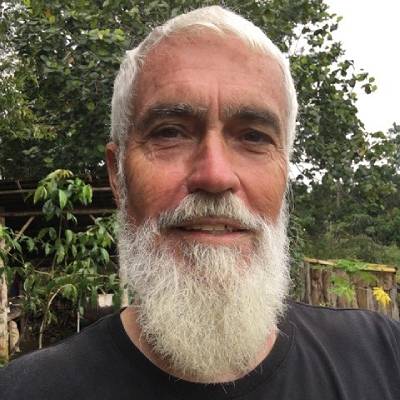 Research Director at the Institute of Environmental Science for Social Change, Philippines
Research Director at the Institute of Environmental Science for Social Change, PhilippinesPedro Walpole, S.J.
Pedro Walpole, SJ, PhD, works in community land management in Southeast Asia with communities, universities, international organizations and governments. He is a global coordination for GIAN Ecology Network (Ecojesuit) to care for creation under the Social Justice and Ecology Secretariat, Rome, and is also a coordinator for the IAJU Task Force on Economics and Ecology. He is the Director for Research at Environmental Science for Social Change, a Philippine Jesuit research institute promoting environmental sustainability and social justice, and seeks to communicate the real causes of landslides and flooding as they occur in a community.
His doctorate is in land use change from King’s College, London. He has been teaching a course on integrating human development in natural resource management for graduate students of the UN-mandated University for Peace and the Ateneo de Manila University and organizes a camp for business graduates to engage with communities impacted by agribusiness. He directs the Apu Palamguwan Cultural Education Center operating an upland culture-based education program (K-12) and the Forest Farm and Leadership in the Margins program for cultural integrity with the youth in northern Mindanao where he continues to live with the Pulangiyēn community.
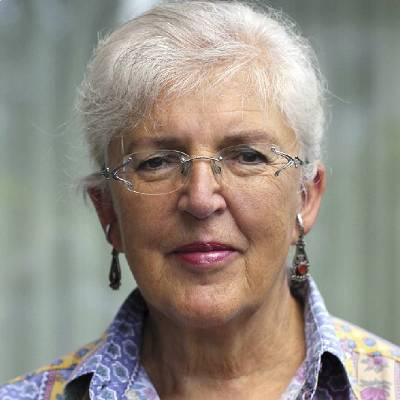 President of the “European Network for Ecological Reflection and Action” (ECOROPA)
President of the “European Network for Ecological Reflection and Action” (ECOROPA)Christine von Weizsäcker
Christine von Weizsäcker is a biologist, author, and environmental activist. She is President of Ecoropa and member of the Advisory Committee of the German Society for Human Ecology. She has served in many women’s, consumers‘, scientific and environmental organizations. Her publications and awards are numerous.
Since the Seventies, she has advised civil society on the assessment of technologies. And, since the Earth Summit in Rio in 1992, she has been focusing on the negotiations of the Convention on Biological Diversity (CBD) and its Protocols. In the present negotiations of the CBD, the systemic integration of environmental protection and sustainable use, human rights and equity is the hotly debated, yet unresolved task.
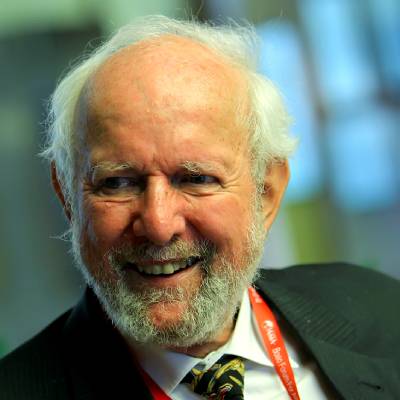 Professor of Environmental Policy, University of Freiburg, Germany; former Co-President of the Club of Rome
Professor of Environmental Policy, University of Freiburg, Germany; former Co-President of the Club of RomeErnst Ulrich von Weizsäcker
Ernst Ulrich von Weizsäcker, who earned his PhD in biology at Freiburg University in 1968, was full professor of biology at Essen University from 1972 to 1975. After serving i. a. as Founding President of the University of Kassel, Director at the UN Centre for Science and Technology for Development, and Director of the Institute for European Environmental Policy, he was the Founding President of the Wuppertal Institute for Climate, Environment, and Energy (1991-2000). From 1998 to 2005 he was an elected Member of the German Bundestag, chairing consecutively the Select Committee on Globalization, and the Environment Committee. Afterwards, he was Dean and Professor of the Graduate School of Environmental Science and Management, University of California, and part-time Co-Chair of UNEP’s International Resource Panel. Since 2009, he is honorary professor at Freiburg University, teaching climate and resource policies. Together with Anders Wijkman, Ernst Ulrich von Weizsäcker was Co-President of the Club of Rome from 2012 to 2018 and is now its Honorary President.
Honours he has received include three honorary doctorates (outside Germany), the (WWF) Duke of Edinburgh Gold Medal, the Italian Premio de Natura (shared with PM Gro Brundtland), the Japanese Takeda Award, the German Environment Prize, and the Grand Cross of Merit of Germany. He is a member of the European Academy of Sciences and Arts, and of the World Academy of Art and Science.
His books include Earth Politics (1989, English 1991), Factor Four (1997, with Amory and Hunter Lovins), Limits to Privatization (2005, with Oran Young and Matthias Finger), Factor Five (2009, with Charlie Hargroves et al.), and Come On! (2018, with Anders Wijkman). All were translated into five to twenty languages (mostly including Chinese Mandarin).
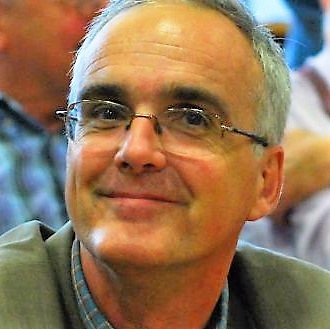 Assoc. Professor of Theology, Director of the Department of Fundamental Theology, Pontifical Gregorian University
Assoc. Professor of Theology, Director of the Department of Fundamental Theology, Pontifical Gregorian UniversityGerard Whelan, S.J.
Gerard Whelan is an Irish Jesuit and Director of the Department of Fundamental Theology at the Pontifical Gregorian University, Rome. He holds an M.A. in Economics and a Ph.D. in Systematic Theology. He lived in Zambia and Kenya for fourteen years, teaching theology at Hekima College, the Jesuit School of Theology at Nairobi, and being pastor of a poor parish. He helped with the representation of the Holy See to UN-HABITAT from 2001-2006 and was appointed as Ecclesiastical Assistant of the World Union of Catholic Women’s Organizations, 2011-2021. He is author of Redeeming History: Social Concern in Bernard Lonergan and Robert Doran (Rome, 2013); A Discerning Church: Pope Francis, Lonergan, and a Theological Method for the Future (New Jersey, 2019); and “Capitalism Reform it or Replace it? The Encounter of Ethics and Economics in Current Ecological Debates,“ in Joseph Ogbonnaya and Gerard Whelan (eds), Intellect, Affect, and God: The Trinity, History, and the Life of Grace, (Milwaukee, 2021). He devotes time to spiritual direction and publishes on the theme of “Psychic conversion and the Spiritual Exercises of St. Ignatius.”
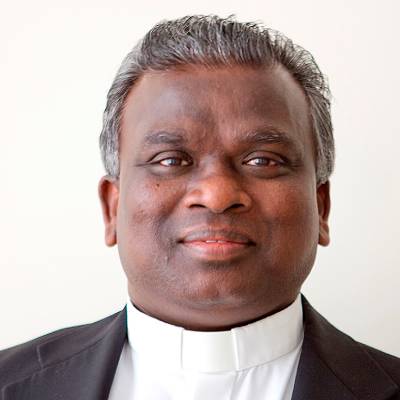 Coordinator of the Joint Diploma in Integral Ecology, Pontifical Gregorian University
Coordinator of the Joint Diploma in Integral Ecology, Pontifical Gregorian UniversityPrem Xalxo, S.J.
Prem Xalxo, SJ, is lecturer in Moral Theology at the Gregorian University in Rome. He had his Licentiate in Moral Theology from Accademia Alfonsiana, Rome, and his Doctorate in Moral Theology from the Gregorian University. His doctoral thesis, Complementarity of Human Life and Other Life Forms in Nature, was published in 2007 from Editrice Pontificia Università Gregoriana, Rome. A revised version of it, Current Ecological Crisis and Its Moral Dimension, was published in 2008 by Xavier Publications, Ranchi. Two of his recent articles, “Ecología Integral: Fundamentos Teológicos y Antropológicos” and “Covid-19 and the Call to sanitize Human Conscience” were published by AUSP Barcelona and Warszawskie Studia Teologiczne respectively.
His primary fields of interest, study and research are Ecological Ethics and Ethical-Theological Vision of Social Communications. After the promulgation of Laudato si’, he has been coordinating a Joint Diploma in Integral Ecology, a joint venture of the Pontifical Universities of Rome to create an interuniversity and interdisciplinary collaboration for a common cause – Care for Our Common Home.
This conference was organized by:
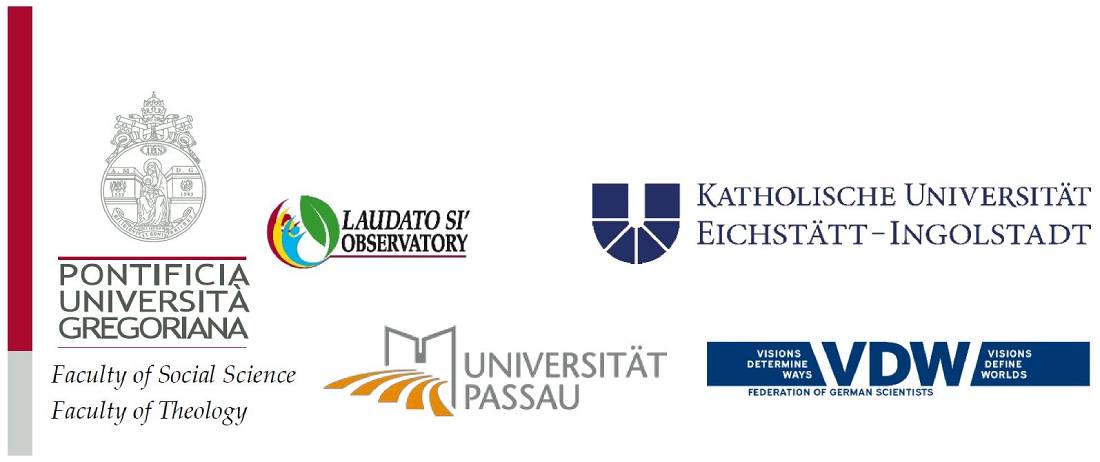
In collaboration and partnership with:
